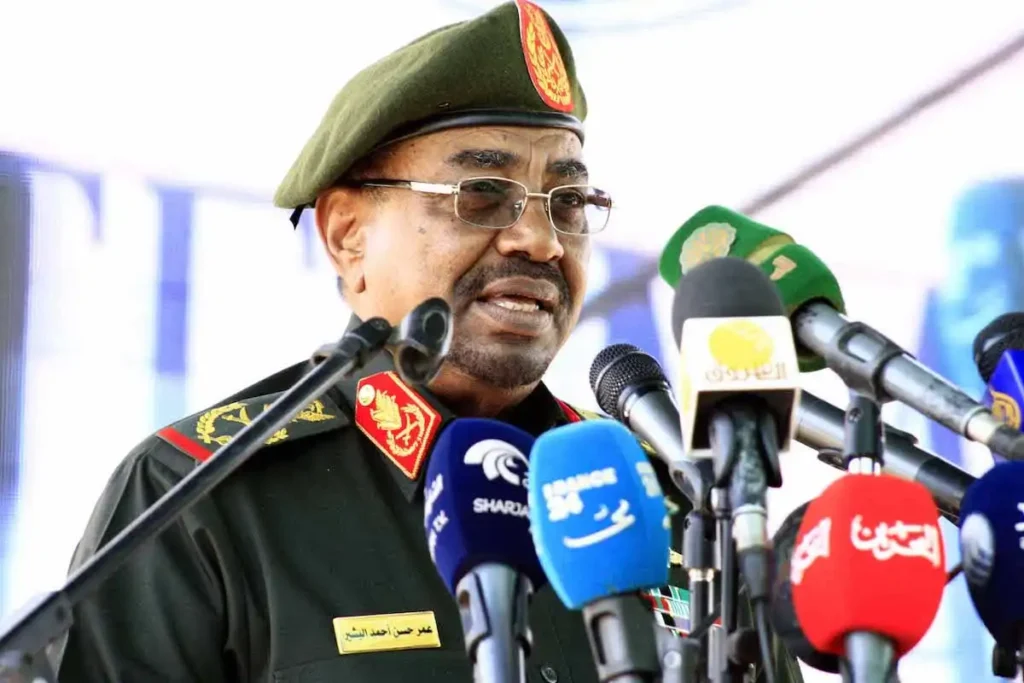Some of the features of a military regime are suspension of the constitution, forceful takeover, airspace and border closure, house arrests and detentions of politicians, and media censorship.
This article will explain the peculiar characteristics of coup de’tat in countries where a constitutional authority or another military regime has been overthrown, particularly in Africa.

What is a military coup?
Popularly known as “coup d’état,” a military coup is a forceful and violent overthrow of a sitting government usually planned and carried out by a faction within the military or security forces of a country.
Understanding a military coup
The word, “forceful” is one of the major characteristics of a military takeover of a government. Forceful takeover of power has happened in almost all African countries, especially after their independence.
For instance, the first coup d’état in Nigeria occurred on January 15, 1966, when a group of young soldiers killed high-political officeholders, including:
- the Prime Minister of Nigeria (Sir Alhaji Abubakar Tafawa Balewa);
- the Premier of Northern Nigeria who doubles as the Sardauna of Sokoto, Alhaji Ahmadu Bello;
- the Premier of Western Nigeria, Chief Ladoke Akintola, and
- the Federal Minister of Finance, Chief Festus Okotie-Eboh. Some military personnel whom the coup planners saw as enemies were also eliminated.
All coups are not successful, some may be thwarted by counter-coup efforts or internal divisions within the military as we saw during the
Causes
The motivations behind coups can vary widely, ranging from maladministration, and grievances against the existing government to power struggles within the military or political ideology (covered in one of our articles).
What are the characteristics of a military rule?
Use of military force:
Military coups are typically carried out by a faction within the armed forces. They use force, including troops, tanks, and weapons, to seize control of key government institutions and suppress opposition.
For instance, senior military officers in Niger Republic on July 26, 2023, forcefully took over power from President Mohamed Bazoum.
Later, General Abdourahamane Tchiani who is the commander of the presidential guard announced himself as the leader of a new military government after the coup was successful.
Suspension of the Constitution:
Coup leaders often suspend the country’s constitution, effectively dismantling the legal framework that governs the nation. They also dissolve the legislature and other government bodies.
For instance, the Military Head of State in Nigeria after the January 15, 1966 coup General T.U. Aguiyi Ironsi’s first action was the suspension of certain provisions of Nigeria’s constitution and the legislature.
Seizure of government institutions:
Coup plotters target critical government institutions such as the presidential palace, parliament, state media, and security agencies to establish control and authority.
Arrests and detentions:
Coup leaders frequently arrest and detain political leaders, government officials, and individuals they perceive as threats to their rule. After the coup in the Republic of Niger, the presidential guard arrested and detained President Mohamed Bazoum and his family members and those perceived as loyalists of his administration.
Usually, the detainees are held without trial, and their rights may be severely restricted.
Curfews and restrictions:
In response to the coup, curfews may be imposed, and civil liberties and political activities are often restricted. Freedom of assembly, speech, and movement may be severely limited.
Expulsion of foreign ambassadors:
The military regime doesn’t allow contrary opinions, especially the ones that speak against their junta. So, one of the actions military leaders take after the takeover is to expel representatives of foreign countries in their home country if they perceive them as being enemies.
For instance, the former colonial master of Niger Republic, France spoke against the July 2023 coup d’état in the country. Most of the statements by France were issued by Ambassador to Niger, Sylvain Itte.
Ambassador Itte’s visas and that of his family were cancelled and the military junta ordered the police to expel the envoy. It’s one of the features of the military regime.
Censorship and media control:
Coup leaders often exercise control over the media, including shutting down independent news outlets, censoring content, and controlling the narrative to shape public perception.
During the dark days of military rule in Nigeria, the press was gagged, and some media houses changed the location of publications.
International reaction:
Military coups typically draw international attention and condemnation. Foreign governments and international organizations may denounce the coup, call for a return to civilian rule, or impose sanctions on the coup leaders and their supporters.
For instance, Nigeria, which shares a border with Niger, on August 2, 2023, cut the power supply to Niger and impose other economic sanctions on the country’s military leadership, the regional bloc, the Economic Community of West African States (ECOWAS) announced similar sanctions.
Long-term implications:
Military coups can lead to significant political instability, violence, social unrest, and failure to fulfil their ‘promises’ on getting to power.
They can also have lasting consequences for a nation’s governance, and economy because most of them are also as corrupt as the democratically-elected officials they overthrow, and international relations because economic sanctions will limit their exploration of their potential
Announcement of coup leadership:
After taking control, the coup leaders usually make public announcements, broadcast messages, or issue statements explaining their actions and declaring themselves in charge. They may claim to be acting in the nation’s best interest or cite specific grievances against the previous government.
Public reaction:
The success or failure of a coup can depend on the level of public support or resistance. For instance, after the ouster of former Sudanese President Omar Hassan Ahmad al-Bashir through a a coup d’état on April 11, 2019, thousands of Sudanese flooded the streets to rejoice the end of a man who had ruled them for at least 30 years.
Public demonstrations, protests, and acts of civil disobedience may occur in response to a coup, but this is very rare in most of the military takeovers across Africa.

